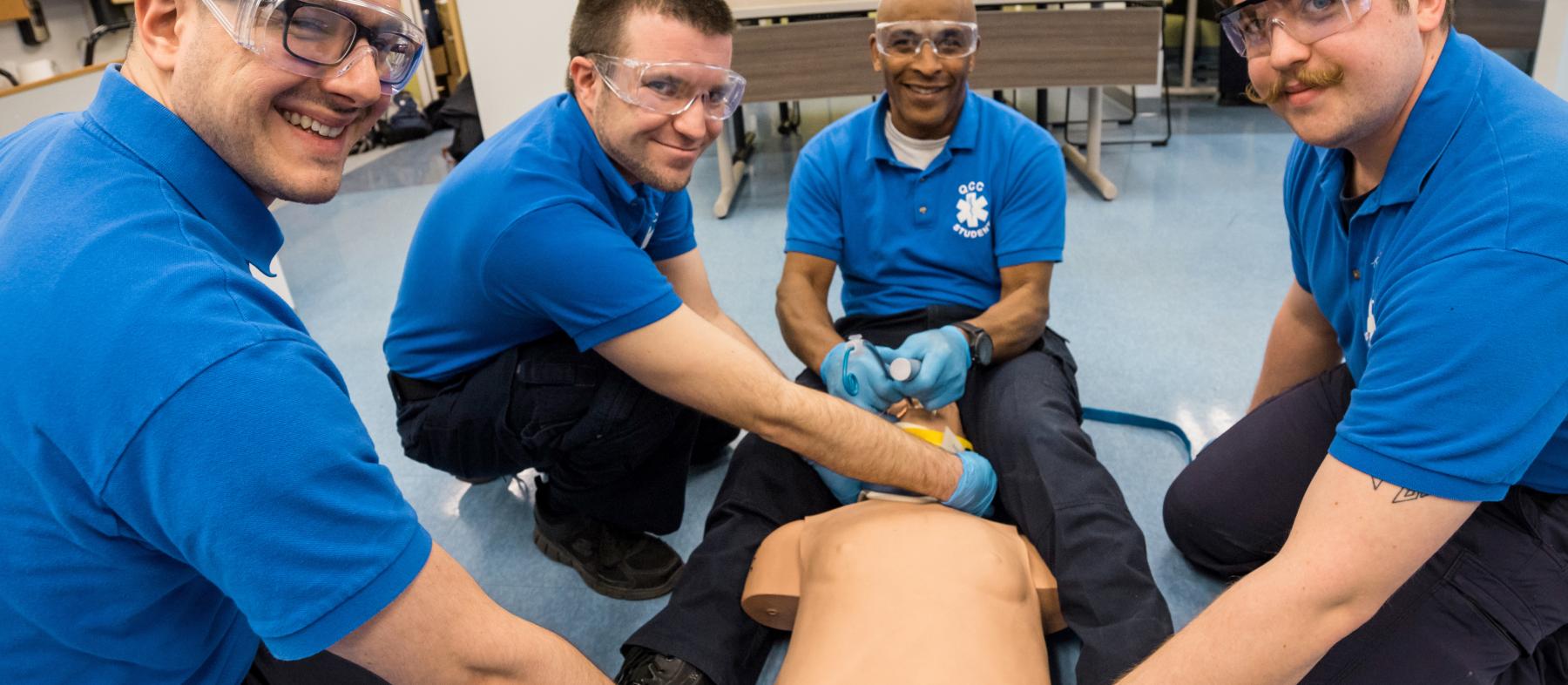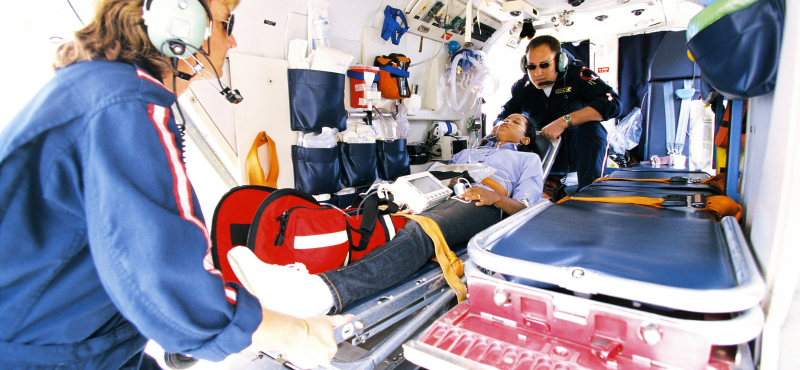Program Goals:
The goal of the Paramedic Technology associate degree program is to prepare competent entry-level emergency medical technician-paramedics to serve in career and volunteer positions throughout the Commonwealth and neighboring regions.
Student Learning Outcomes:
Upon completion of the program, graduates will be able to:
- Apply the knowledge of paramedicine in the scope of the overall healthcare system.
- Understand the paramedic’s role in the community as a provider, educator, and leader.
- Explain and demonstrate the role paramedics can play in the leadership of EMS Systems.
- Explain how paramedics can assist the community in reducing the rate of mortality for various disease processes and play a role in the reduction of those rates.
- Demonstrate strong public speaking skills, communication skills, and medical systems knowledge to be an effective communicator, provider, and leader in the public safety field.
Admissions Process:
Admissions inquiries should be directed to admissions@qcc.mass.edu. Prospective students may apply to the program of their choice by following the enrollment steps at www.QCC.edu/enrollment-steps.
Program Admissions Requirements:
Students should note that some first semester courses carry minimum prerequisites. Refer to the program grid.
- High School Diploma or GED/HiSET.
- Current Paramedic certification (any current state paramedic or National Registry Paramedic certification or currently enrolled in the EMT Paramedic Certificate program).
CORI, SORI, Finger Printing & Drug Testing:
Criminal Offender Record Information (CORI), Sex Offender Registry Information (SORI), and National Background checks are required in the program, either annually or every semester. Fingerprinting and drug testing may be required. Fingerprinting and drug testing results must meet clinical requirements. An issue with CORI/SORI, National Background, fingerprinting and/or drug testing could prevent a student from participating in a clinical/field rotation, which could result in dismissal from the program.
Additional Cost:
See the Program Fees page
Technical Performance Standards:
See the Technical Performance Standards page. (Note: Not all programs have technical performance standards).
- The QCC Emergency Medical Services/Paramedicine program is deeply committed to diversity and fostering an inclusive environment that represents the diverse population of healthcare professionals. We value the uniqueness and potential of every learner and strive to create a culture of respect and equality, welcoming all students, including individuals with disabilities. We encourage students with disabilities to disclose their needs and seek accommodations to fully engage in our program. All disability-related conversations and requests are handled through a confidential process to protect the privacy of our students. After reviewing the Technical Performance Standards, students who have questions about accommodations should contact QCC Student Accessibility Services as soon as possible. Given the complexities of clinical-based programs, additional time may be needed to effectively implement accommodations.
- For more information, contact QCC Student Accessibility Services:
Credit for Prior Learning:
Credit for Prior Learning (CPL) allows students to use skills they already have towards a college degree or certificate. Work, life, volunteer and military experience may be translated into credit, allowing students to take fewer classes and earn their degree faster. CPL eliminates redundancies for students who have already earned credentials or mastered skills required for their program of study. Email experience@qcc.mass.edu for more information and eligibility.
Career Outlook:
Please consult the Massachusetts Career Information System at https://masscis.intocareers.org/ or the Occupational Outlook Handbook at www.bls.gov/ooh/ for specific occupational information. The CIP code for this program is 51.0904.
Transfer Articulations & Opportunities:
Prospective students may learn more about transfer articulation agreements at www.QCC.edu/agreements. More information regarding transfer opportunities is available at www.QCC.edu/transfer.


